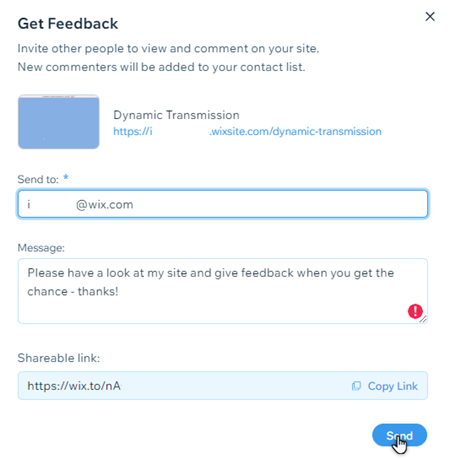7 Key Points to Transition from Good to Great
In the pursuit of excellence, the journey from good to great is both challenging and transformative. It requires a shift in mindset, habits, and strategies. Here are seven key points to guide you through this transition, each supported by insights, examples, and actionable steps.
1. Cultivate a Growth Mindset
The foundation of greatness lies in believing that abilities and intelligence can be developed through dedication and hard work. This growth mindset, popularized by psychologist Carol Dweck, contrasts with a fixed mindset, where traits are seen as static.
Why It Matters: Individuals with a growth mindset embrace challenges, persist in the face of setbacks, and see effort as a path to mastery. For instance, Thomas Edison’s countless attempts to invent the light bulb exemplify this mindset. When asked about his failures, he famously replied, “I have not failed. I’ve just found 10,000 ways that won’t work.”
Actionable Step: Reflect on your recent failures. Instead of viewing them as proof of inadequacy, ask yourself, “What can I learn from this?” and “How can I improve next time?”
2. Prioritize Ruthless Focus
Greatness often comes from doing fewer things but doing them exceptionally well. Focus is the antidote to mediocrity.
Why It Matters: In a world of endless distractions, focus is a superpower. Companies like Apple under Steve Jobs thrived by eliminating product lines and concentrating on a few groundbreaking innovations. Similarly, athletes like Michael Phelps achieved greatness by focusing on specific strokes and techniques.
Actionable Step: Identify your top 3 priorities—whether personal or professional. Allocate 80% of your time and energy to these areas, and eliminate or delegate the rest.
3. Embrace Feedback as a Gift
Pro: Feedback provides objective insights into your strengths and areas for improvement.
Con: It can be uncomfortable or feel like criticism.
Why It Matters: Greatness is forged through continuous improvement, and feedback is the compass that guides this journey. Companies like Google use 360-degree feedback systems to help employees grow, while leaders like Satya Nadella credit their success to actively seeking and acting on feedback.
Actionable Step: Solicit feedback from trusted colleagues, mentors, or friends. Ask specific questions like, “What’s one thing I could improve to be more effective?” and commit to acting on at least one piece of advice.
4. Build a Culture of Excellence
- Set Clear Standards: Define what excellence looks like in your work or team.
- Lead by Example: Demonstrate the behaviors and attitudes you expect from others.
- Celebrate Wins: Recognize and reward achievements, no matter how small.
Why It Matters: A culture of excellence fosters accountability, innovation, and continuous improvement. Pixar, for example, encourages employees to fail early and often, viewing mistakes as opportunities to learn and innovate.
Actionable Step: Organize a team meeting to discuss what excellence means in your context. Create a shared document outlining these standards and hold regular check-ins to track progress.
5. Invest in Continuous Learning
Greatness is not a destination but a lifelong journey of learning and growth. The most successful individuals and organizations prioritize education and skill development.
Why It Matters: The half-life of skills is shrinking, and staying relevant requires constant upskilling. Microsoft’s annual $1.5 billion investment in employee training is a testament to the value of continuous learning.
Actionable Step: Dedicate at least 1 hour per week to learning something new. This could be through online courses, books, podcasts, or workshops. Track your progress and apply what you learn to your work or life.
6. Develop Resilience in the Face of Adversity
Throughout history, resilience has been the hallmark of great leaders and innovators. From Nelson Mandela’s 27-year imprisonment to J.K. Rowling’s rejection by 12 publishers, resilience turns setbacks into stepping stones.
Why It Matters: Adversity is inevitable, but how you respond defines your trajectory. Research shows that resilient individuals view challenges as temporary and maintain a positive outlook.
Actionable Step: When faced with a setback, practice the “3 P’s” of resilience: Personalize (don’t blame yourself), Pervasiveness (don’t let it affect all areas of life), and Permanence (believe it’s temporary).
7. Align Actions with Purpose
Greatness is not just about achievement but about impact. Aligning your actions with a deeper purpose gives your efforts meaning and direction.
Why It Matters: Purpose-driven individuals and organizations outperform their peers. Patagonia, for example, aligns its business with environmental sustainability, creating both profit and positive change.
Actionable Step: Write down your personal or professional purpose statement. Ask yourself, “Why do I do what I do?” and ensure your daily actions align with this purpose.
How long does it take to transition from good to great?
+The timeline varies, but consistent effort over months or years is typically required. Jim Collins’ research in Good to Great found that companies took an average of 7 years to achieve sustained greatness.
Can anyone achieve greatness, or is it reserved for the talented?
+Greatness is accessible to anyone willing to put in the effort. Talent is a starting point, but grit, focus, and resilience are the true drivers of success.
How do I stay motivated during the transition?
+Break your goals into smaller, manageable tasks, celebrate progress, and surround yourself with a supportive network. Regularly revisit your purpose to reignite motivation.
What role does mentorship play in achieving greatness?
+Mentors provide guidance, feedback, and perspective, accelerating your growth. Studies show that 75% of professionals credit mentorship as key to their success.
Transitioning from good to great is a journey of intentionality, resilience, and continuous growth. By cultivating a growth mindset, prioritizing focus, embracing feedback, and aligning with purpose, you can unlock your potential and achieve lasting excellence. Remember, greatness is not about perfection but about progress—one step at a time.


